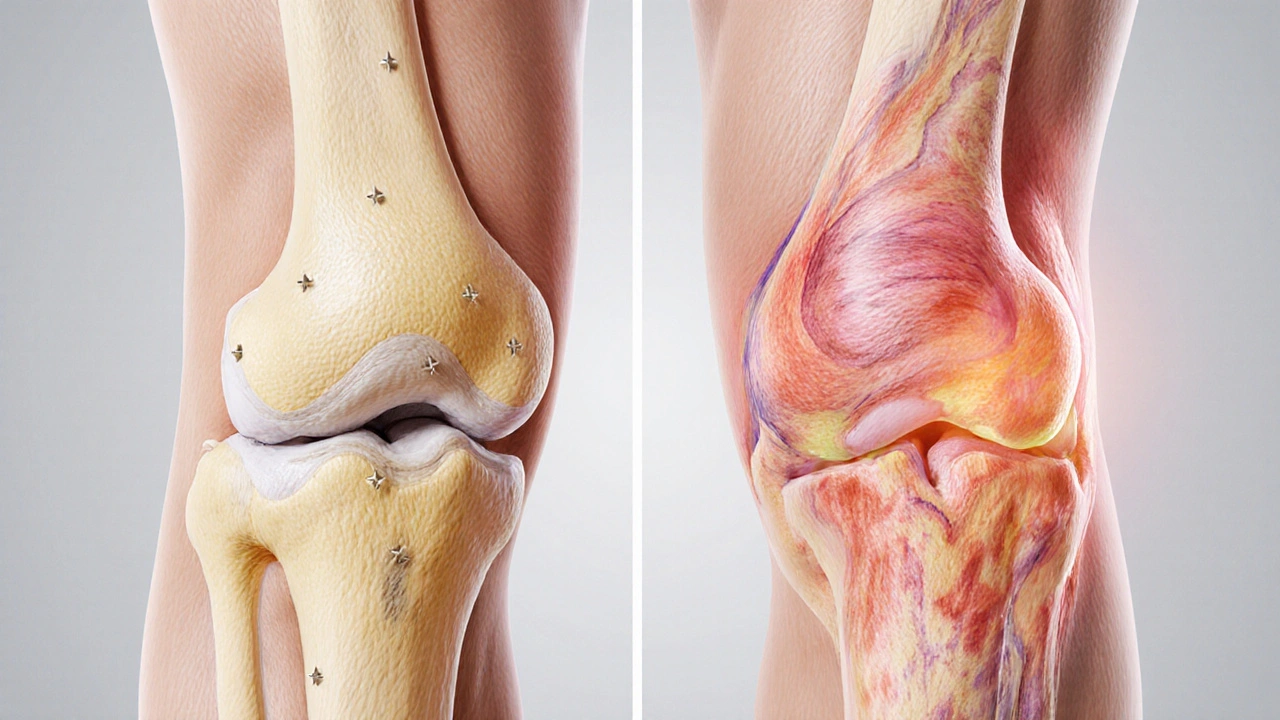Autoimmune vs Degenerative: Key Differences and What They Mean for Your Health
When your body attacks itself, it’s not a glitch—it’s an autoimmune disease, a condition where the immune system mistakenly targets healthy tissues. Also known as immune-mediated disorders, these include type 1 diabetes, rheumatoid arthritis, and lupus. The immune system, designed to fight invaders like viruses and bacteria, turns against your joints, skin, nerves, or organs. On the other side, degenerative diseases, a group of conditions where cells or tissues gradually break down over time. Also known as neurodegenerative or tissue-wearing disorders, they include Alzheimer’s, Parkinson’s, and osteoarthritis. These aren’t caused by your immune system going rogue—they happen because cells lose their ability to repair or renew themselves.
The biggest difference? One is an attack from within, the other is a slow collapse. In autoimmune conditions, inflammation is the main driver. That’s why steroids, immunosuppressants, and biologics are often used—they calm the overactive immune response. In degenerative diseases, the goal is usually to slow the loss, manage symptoms, and support remaining function. You won’t find a drug that stops Parkinson’s from destroying brain cells, but you can use meds to improve movement or physical therapy to keep mobility longer.
Some conditions blur the line. Multiple sclerosis, for example, is autoimmune in origin but leads to degeneration of nerve coverings. Similarly, some forms of arthritis involve both immune-driven inflammation and joint wear-and-tear. That’s why diagnosis matters so much—treatment changes completely depending on whether your body is attacking itself or simply wearing out.
What you’ll find in the posts below are real comparisons between drugs used for these very different problems. You’ll see how steroids like Calcort (Deflazacort) are used to suppress immune attacks in autoimmune cases, while statins like Simvastatin help protect against heart damage that often comes with chronic inflammation. You’ll also find guides on managing nerve-related side effects from drugs used in degenerative conditions, or how medications like carbamazepine help with nerve pain that can come from either cause. There’s no one-size-fits-all, but knowing whether you’re dealing with an autoimmune flare or a degenerative decline helps you ask the right questions—and get the right care.

Osteoarthritis vs Rheumatoid Arthritis: How They’re Linked
Learn how osteoarthritis and rheumatoid arthritis differ and overlap, covering causes, symptoms, diagnosis, treatment, and shared management tips.
September 30 2025